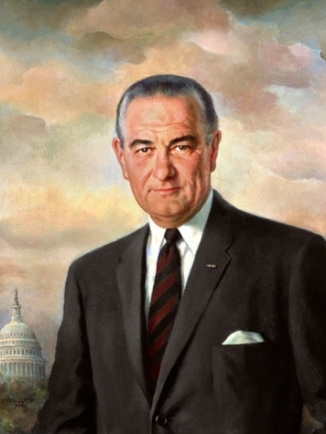

Definition: A humility type reference is an indication or declaration made by the President that either him or the nation as a whole are inferior, dependent, if not subservient to all-powerful God.
Example: “We have been allowed by Him to seek greatness with the sweat of our hands and the strength of our spirit.” – Lyndon Baines Johnson
Graph:
Count:59
Percentage: 34.5%
Conlusions:As a whole, it was revealing just how many times Presidents referred to the nation or the people as inferior to God/ the divine. As seen with the graph, there was a pretty constant use and a low variance. One interesting section of the graph is the stretch from 1801 to 1813, Thomas Jefferson’s and James Madison’s addresses. Both of these Presidents were loosely described as Christian based Deists, who in short believed that there was a divine higher power that made the world, but then let it be. From our small sample size of Deist Presidents, it seems that there was little need to reiterate the dependency to a detached God.
Definition:A testimony type reference is a direct acknowledgment of God, essentially declaring his presence, which would not fit under the other categories. Also, direct quotes of scripture would fit into this category.
Example:The Almighty has His own purposes. “Woe unto the world because of offenses; for it must needs be that offenses come, but woe to that man by whom the offense cometh.” – Abraham Lincoln
Graph:
Count:16
Percentage: 9.4%
Conlusions: The obvious interesting point on the graph above is the speech [gonna make this into a link to the actual speech lincoln2_20] made in 1865 by Abraham Lincoln. Lincoln, giving the address at the near end of the Civil War, seems to feel the need to reassure the American people that there exists a God that all citizens pray to, regardless if they are from the North or South. This speech is further noted for its short length, which characterizes some of Lincoln’s most famous speeches (e.g. the Gettysburg Address), but still has six references to God. Definitely a litmus test of sorts for analysis of the relationship between the American executive, the religious divine, and public perception.
Definition: A supplication type reference is a plea or imploration to God for assistance, guidance, or His blessing.
Example: “And a firm reliance on the goodness of that Power whose providence mercifully protected our national infancy, and has since upheld our liberties in various vicissitudes, encourages me to offer up my ardent supplications that He will continue to make our beloved country the object of His divine care and gracious benediction.” –Andrew Jackson
Graph:
Count:52
Percentage: 30.4%
Conlusions: Conclusions: Several peaks of the graph, especially 1789, 1933, and 1985, are rather interesting. First, George Washington appealed to God for assistance four times in 1789. This does not seem surprising, as America was then a new nation, in need of assistance. In fact, most of the references specifically ask for success for the new government. The next peak of 1933 was the first term of Franklin Delano Roosevelt—during the height of the Great Depression. As you may guess, at the end of the speech FDR asks for God’s guidance in managing the nation through the tough crisis. The last peak of 1985 can be attributed to the “Reagan effect,” as he referenced God the most. Most of his supplication type references are asking God to bless both the nation and the people.
Definition:A praise type reference is exactly what it seems, a statement of praise, glorifying God because of his actions or general presence.
Example: “For all our problems, our differences, we are together as of old, as we raise our voices to the God who is the Author of this most tender music.” – Ronald Reagan
Graph:
Count:43
Percentage: 25.1%
Conlusions: What was interesting about this graph was the seemingly direct relationship between two of the “golden eras” in United States history and the lack of praise type references. One can see that there were no praise references made from 1821 to 1837 and from 1917 to 1929. These two time periods match up with the ‘Era of Good Feelings’ and the ‘Roaring 20’s’ of the 20 th century. One would think that Presidential addresses during periods of growth, peace, and prosperity would praise God for the country’s good position. However, even though this is not the case in these two occasions, other periods of American triumph do contain multiple praise references. The most notable may be Franklin Delano Roosevelt’s last inaugural address in 1945—when victory in World War II was nearly imminent.